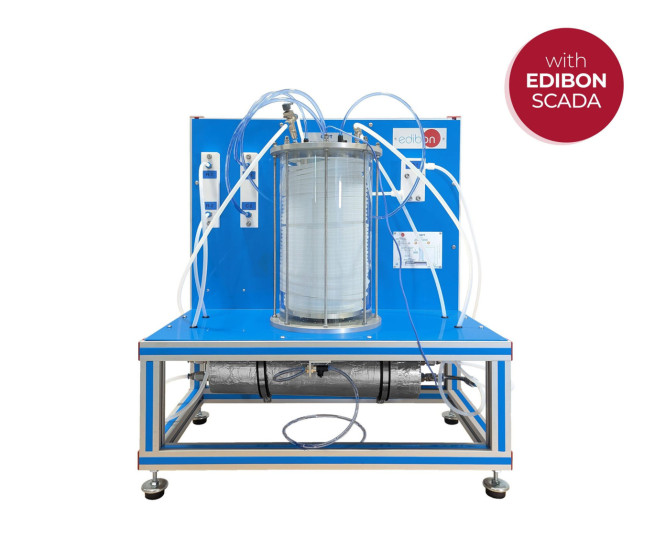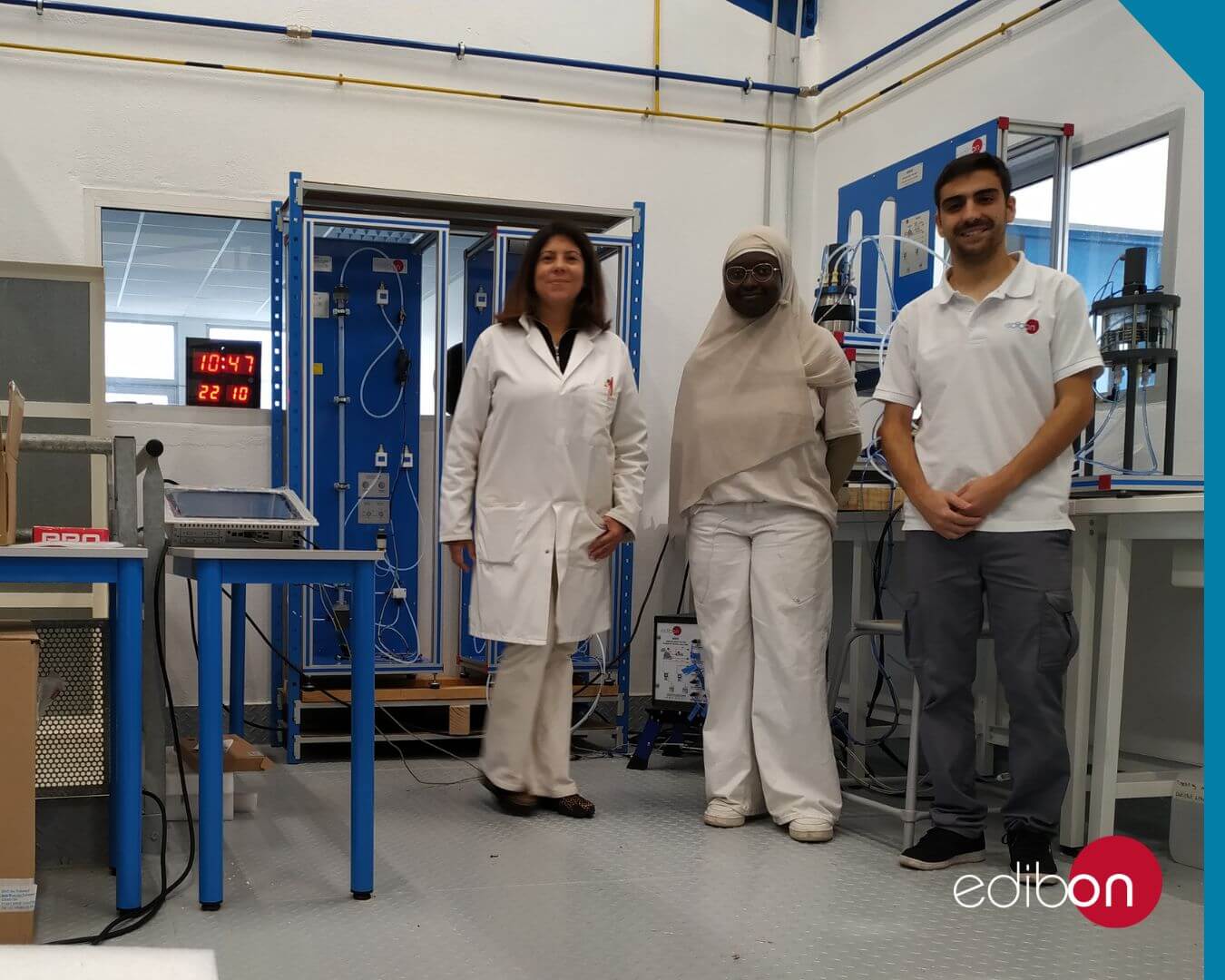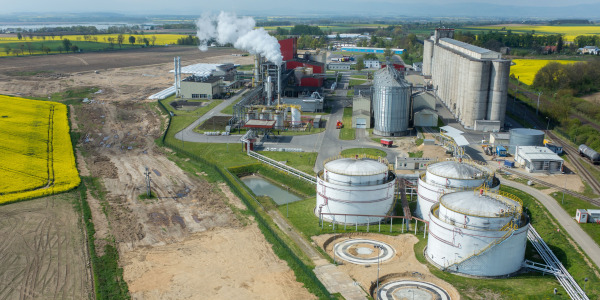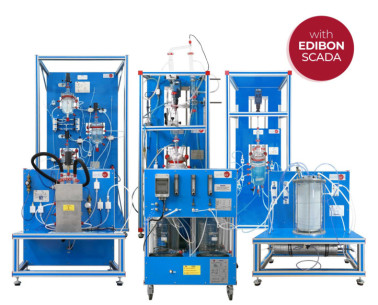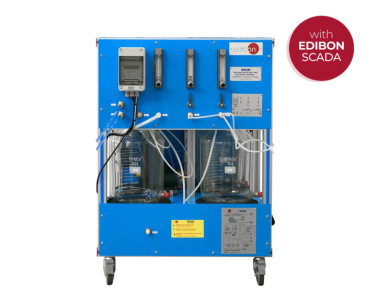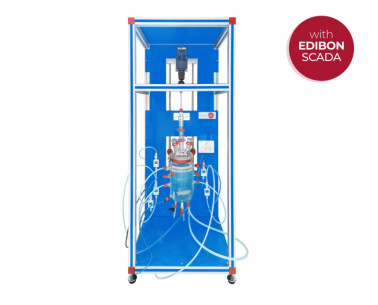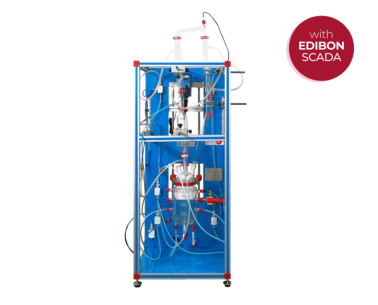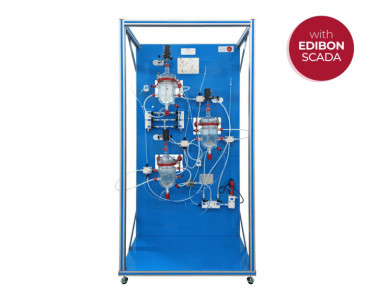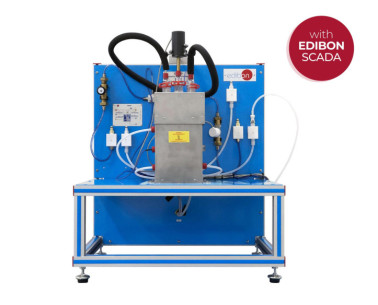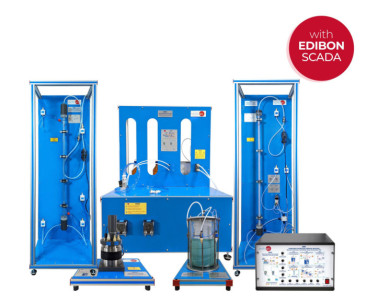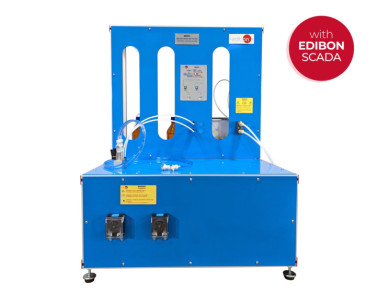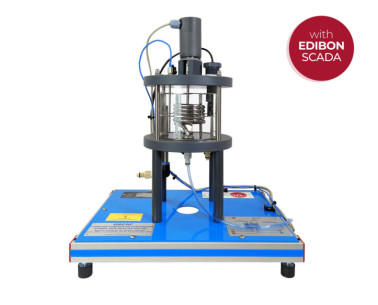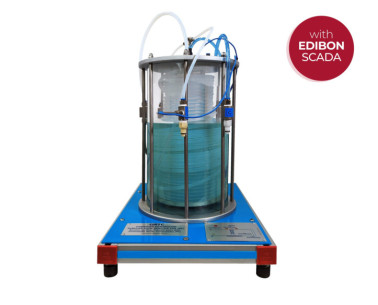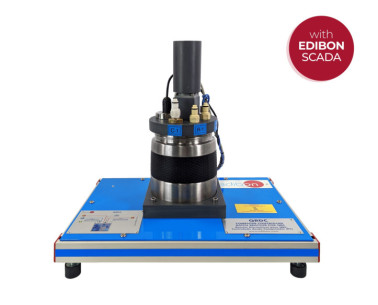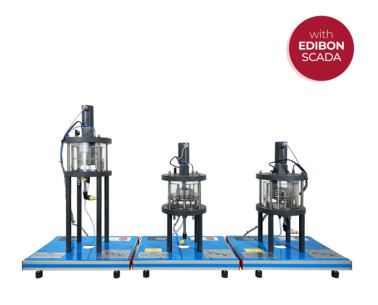QRFT Tubular Flow Reactor
INNOVATIVE SYSTEMS
The Tubular Flow Reactor, "QRFT", specifically designed by EDIBON, is intended for the kinetic study of liquid-liquid homogeneous reactions. This unit allows for a wide range of practices, including the determination of kinetic equations, the calculation of kinetic constants and their variation with temperature, as well as the comparison of theoretical and experimental conversion values of the reactor.
Expansions
Laboratories
RELATED NEWS
General Description
The Tubular Flow Reactor, "QRFT," specifically designed by EDIBON, is intended for the kinetic study of liquid-liquid homogeneous reactions. This unit allows for a wide range of practices, including the determination of kinetic equations, the calculation of kinetic constants and their variation with temperature, as well as the comparison of theoretical and experimental conversion values of the reactor.
Additionally, it facilitates the study of residence time effects and mixing effects in chemical reactions, providing precise and detailed data that significantly contribute to the advancement of knowledge in the field of chemistry and process engineering.
Tubular flow reactors are essential elements in the field of chemical and process research. These laboratory units are used to study and understand chemical reactions, as well as to develop velocity equations that describe their operation and evolution. Their versatility and precision make them indispensable tools in various industrial fields.
To work with this reactor, the Base and Service Unit, "QRUBI," is required, which supplies the necessary reagents and thermostatic water for proper operation.
These Computer Controlled Units are supplied with EDIBON Computer Control System (SCADA), and includes: The unit itself + a Control Interface Box + a Data Acquisition Board + Computer Control, Data Acquisition and Data Management Software Packages, for controlling the process and all parameters involved in the process.
Exercises and guided practices
GUIDED PRACTICAL EXERCISES INCLUDED IN THE MANUAL
- Determination of the ionic conductivities.
- Theoretical conversion of the tubular reactor.
- Experimental determination of the tubular reactor conversion.
- Dependence on the residence time.
- Determination of the reaction order.
- Dependence of the rate constant and the conversion with the temperature.
- Sensors calibration.
MORE PRACTICAL EXERCISES TO BE DONE WITH THE UNIT
- Many students view results simultaneously. To view all results in real time in the classroom by means of a projector or an electronic whiteboard.
- Open Control, Multicontrol and Real Time Control. This unit allows intrinsically and/or extrinsically to change the span, gains, proportional, integral, derivate parameters, etc, in real time.
- The Computer Control System with SCADA and PID Control allow a real industrial simulation.
- This unit is totally safe as uses mechanical, electrical and electronic, and software safety devices.
- This unit can be used for doing applied research.
- This unit can be used for giving training courses to Industries even to other Technical Education Institutions.
- Control of the unit process through the control interface box without the computer.
- Visualization of all the sensors values used in the unit process.
- By using PLC-PI additional 19 more exercises can be done.
- Several other exercises can be done and designed by the user.
SUPPLEMENTARY EQUIPMENT
Base and Service Unit for QRQC
Isothermal Reactor with Stirrer
Isothermal Reactor with Stirrer and Distillation
Reactors with Stirrer in Series
Adiabatic and Isothermal Reactor
Computer Controlled Chemical Reactors
Base and Service Unit for QRC
Computer Controlled Continuous Stirred Tank Reactor for QRC
Computer Controlled Tubular Flow Reactor for QRC
Computer Controlled Batch Reactor for QRC
Computer Controlled Stirred Tank Reactors in Series for QRC
Quality
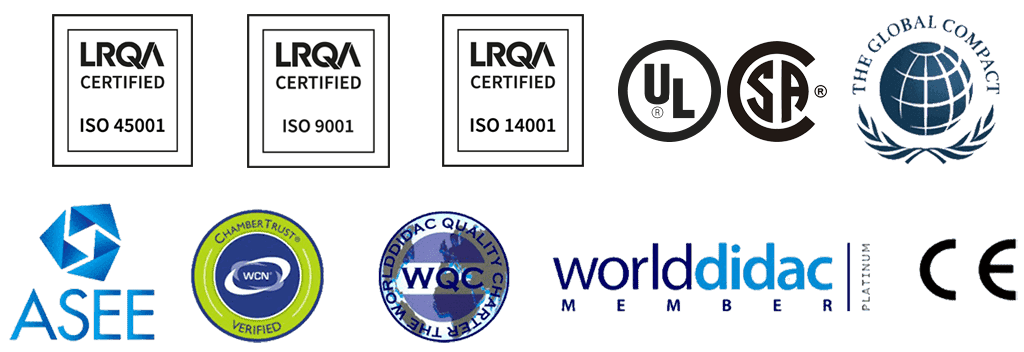
AFTER-SALES SERVICE

 Cookie preferences
Cookie preferences

